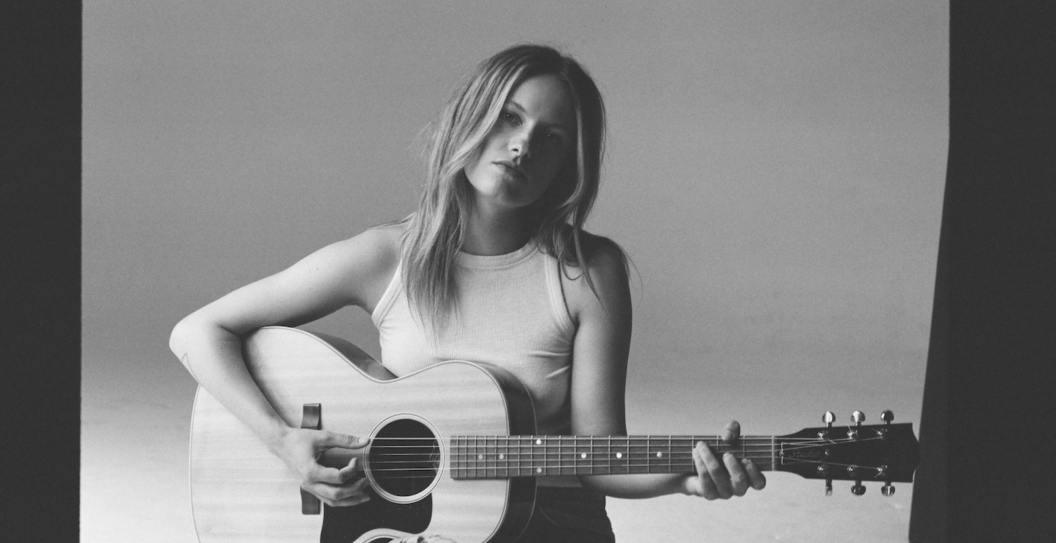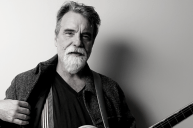Nineties Sheryl Crow and Rhinestone Cowboy-era Glen Campbell collide on #1 Zookeeper (of the San Diego Zoo), the full-length debut from Central Kentucky's Abby Hamilton.
The 10-song effort features everything from stacked vocals to "shiny" pedal steel and an array of guitars, resulting in the artist's grandest production yet while still keeping arrangements manageable to reproduce on the road.
"I wanted the production to be very unique and dynamic, but I still wanted to be able to replicate what we were doing live," Hamilton tells Wide Open Country. "Everything we did in the studio we had to check to see if that same effect could exist on stage. Luckily, I'm joined by some pretty incredible players that helped me figure out how to do that."
Those players include longtime bandmates Zach Martin (drums), Carson Childers (bass) and her brother Zac Hamilton (guitar), along with co-producer Duane Lundy, whom Hamilton has worked with several times going back to 2017's Broke Girl EP. That collective synergy can be felt throughout the album's emotional peaks and valleys, squashing out the anxious thoughts within to show a process for what it takes to truly know and love oneself.
This process exerts itself with several standalone vignettes in addition to a pair of sister songs beginning with the project's lead tracks, the observational "Lucky" and autobiographical "Good Thing." The first explores the concept of what it means to get lucky — from the standpoint of making it in the music industry to finding love, and more — looking at others' motivation as a tool to fuel the same within yourself.
"Good Thing" then takes the idea and reinforces it, acting as a reminder to Hamilton's depressed self that everything is going to be OK. Affirmations like "You're due for a good thing baby / Don't let all that extra weight get you down" and "Put all tomorrow's worries on the shelf / 'Cause tomorrow can take care of itself" help to lift spirits and keep one grounded in the moment and appreciative of the little things rather than worrying about what tomorrow may bring.
"['Lucky' and 'Good Thing'] are reminders to the audience that as we sing together we are all here together," says Hamilton. "That's what the anthemic chorus does for me in both those songs. I had originally planned to include 'Good Thing' on my Afraid of the Dark EP but wasn't satisfied with how it sounded. When it came to this record, I had 'Lucky' and knew the songs were doing the same thing. The boys and I finally got it to where we liked it and are proud to have it on this record."
Another instance of songs with a symbiotic relationship are the album's title track, "#1 Zookeeper (of the San Diego Zoo)," and "Whatever Helps You Sleep." Both breakup ballads, "#1 Zookeeper" stirs the pot with a mix of heartbreak, anxiety and jealousy as it envisions Hamilton's ex with someone new who went to Harvard, reads the New York Times and is "the number one zookeeper at the San Diego Zoo / And all she wants to do is touch you, good for you."
A few tunes later, she flips the script on the rockin' "Whatever Helps You Sleep," which takes a more avoidant approach from the other side of the coin by expressing the lengths people will go to move on from others or sweep things under the rug.
However, no single song captures this mix of anxiety and hope better than "Satisfied," a display of vulnerability centered on falling in love with someone you've been friends with for a long time and the conflict of whether to express your true feelings to them.
"It's basically the conversation in your head asking if it's worth it to risk it all or continue saying nothing," says Hamilton. "Throughout the song, a decision is never made because I wanted that emotion to linger. It's something I've realized is a common experience, maybe not that scenario specifically but the fear of not being wanted or not being enough. For that reason, it's always a very grounding and meditative moment whenever we play it live."
With #1 Zookeeper (of the San Diego Zoo) Hamilton looks back on the anxiety-fueled infighting she's learned and grown from, shaping her into the artist and person she is today. The time stamp — although deeply personal and containing several references to her Kentucky home (such as the Mountain Parkway on "Baby Let's Ride" and Nicholasville on "#1 Zookeeper") — also channels a universal relatability that will aid anyone's journey of self-discovery and healing.
"I hope that people are able to find solace and confirmation that they're not alone with these songs," says Hamilton. "I hope my music can always be that kind of a safe space that I can build relationships with my audience on. I'm very privileged to put out music that people care about and am honored that my songs can bring a bit of hope and light to people's lives."




